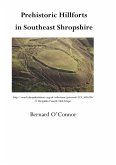A Farthing for the Ferryman is the history of a small corner of West Norfolk from its earliest known inhabitants to the present day.
Even before the last ice age, people lived in this area. Finds in Brecklands include axes, spears and daggers from the early Paleolithic era and by 2500 BC nearby Grime's Graves was an extensive flint mine. Later still, the Iceni, Romans, Saxons and Danes all impacted the area.
The focal point of this story is the ancient town of Stoke Ferry on the bank of the Wissey and the edge of the fens. Already, by the time of the Norman conquest and Domesday, Stoches, as it was then called, was a significant agricultural centre.
This book traces Stoke Ferry's history through times of considerable wealth and comparative decline. Families and individuals shaped its growth, and their histories are recounted. Perhaps most remarkable was the establishment, by the will of James Bradfield, of a free school for poor children more than seventy years before compulsory education was introduced in England.
Today, Stoke Ferry may be typical of many rural communities facing challenges and opportunities to develop into the twenty-first century. Can this place with such a long and surprising history thrive? Why not?
Even before the last ice age, people lived in this area. Finds in Brecklands include axes, spears and daggers from the early Paleolithic era and by 2500 BC nearby Grime's Graves was an extensive flint mine. Later still, the Iceni, Romans, Saxons and Danes all impacted the area.
The focal point of this story is the ancient town of Stoke Ferry on the bank of the Wissey and the edge of the fens. Already, by the time of the Norman conquest and Domesday, Stoches, as it was then called, was a significant agricultural centre.
This book traces Stoke Ferry's history through times of considerable wealth and comparative decline. Families and individuals shaped its growth, and their histories are recounted. Perhaps most remarkable was the establishment, by the will of James Bradfield, of a free school for poor children more than seventy years before compulsory education was introduced in England.
Today, Stoke Ferry may be typical of many rural communities facing challenges and opportunities to develop into the twenty-first century. Can this place with such a long and surprising history thrive? Why not?
Dieser Download kann aus rechtlichen Gründen nur mit Rechnungsadresse in A, D ausgeliefert werden.









